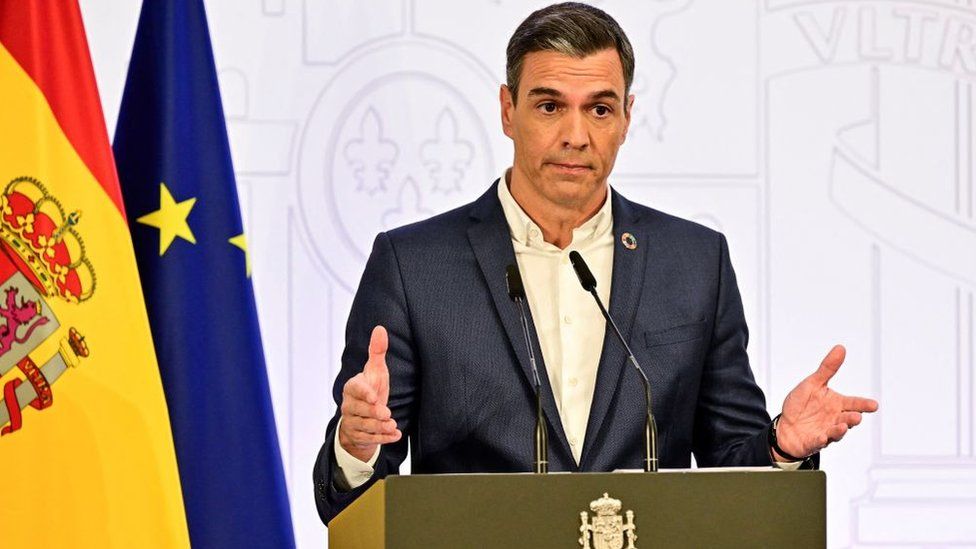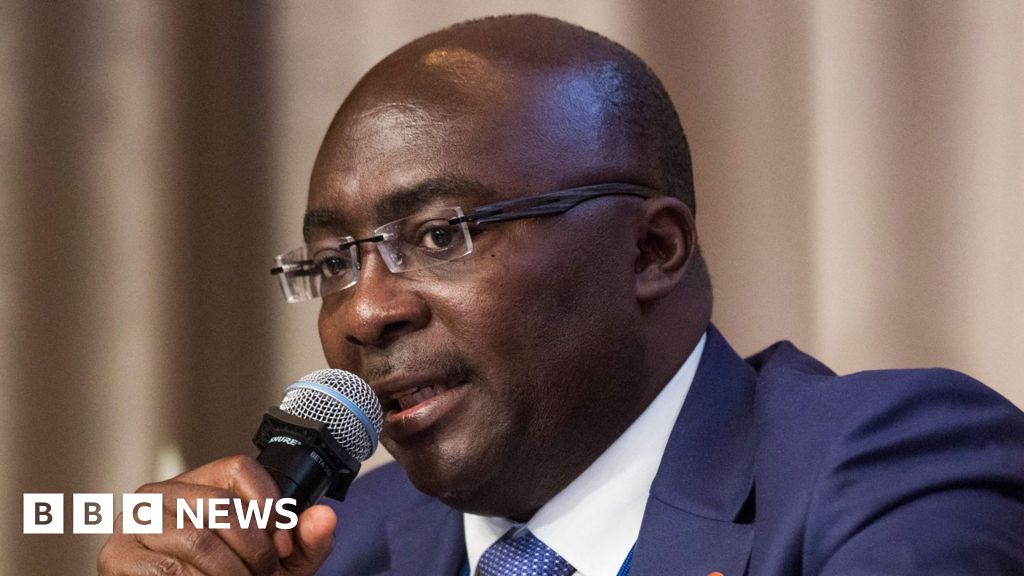ARTICLE AD BOX
By Malu Cursino
BBC News
 Image source, Getty Images
Image source, Getty Images
Pedro Sanchez went tie-free at a press conference in Madrid as he encouraged workers to do the same
Spanish Prime Minister Pedro Sanchez has called on workers in the public and private sector to stop wearing ties, as an energy saving measure in the heat.
Mr Sanchez said his government will adopt "urgent" energy-saving measures on Monday as European countries strive to become less dependent on Russian gas in the wake of the war in Ukraine.
On Friday, temperatures reached 36C (96.8 F) in Madrid and 39C in Seville.
Over the past few weeks Europe has experienced record-high temperatures.
At a news conference in Madrid, Mr Sanchez pointed out that he wasn't wearing a tie - and said he wanted his ministers, public officials, and workers in the private sector to do the same.
"This means that we can all save energy", he added.
The prime minister said the move will ensure people stay cooler and therefore lower energy costs, because air conditioners will be used less often.
Spain is not the first to take this move. In 2011, Japan introduced its "Super Cool Biz" campaign, which encouraged office workers to wear cooler clothes in summer.
And during sweltering temperatures in the UK recently, politicians were told they could ditch their suit jackets while in the House of Commons.
Mr Sanchez's government is working on an energy-saving decree, which is expected to be approved on Monday.
It includes a move to encourage businesses to keep their doors closed where possible, to prevent air conditioning from escaping. A similar rule was introduced in France earlier this week.
The measures are part of the European Commission's €210bn (£176bn) plan to boost renewable energy and reduce European countries' dependency on Russian gas following its invasion of Ukraine.
Germany is following suit, with one of its cities, Hanover, announcing that it would only offer cold showers in public pools and sports centres.
Extremely high temperatures over the past couple of weeks have led governments across the world to reconsider their energy usage - from an environmental and cost saving perspective.
Heatwaves have become more frequent, more intense, and last longer because of human-induced climate change.
The world has already warmed by about 1.1C since the industrial era began and temperatures will keep rising unless governments around the world make steep cuts to emissions.
As well as increasing energy costs, recent heatwaves have led to more than 500 deaths in Spain over the past two weeks.
The World Health Organization said Europe's most recent heatwave has led to "needless deaths".

 2 years ago
67
2 years ago
67








 English (US)
English (US)